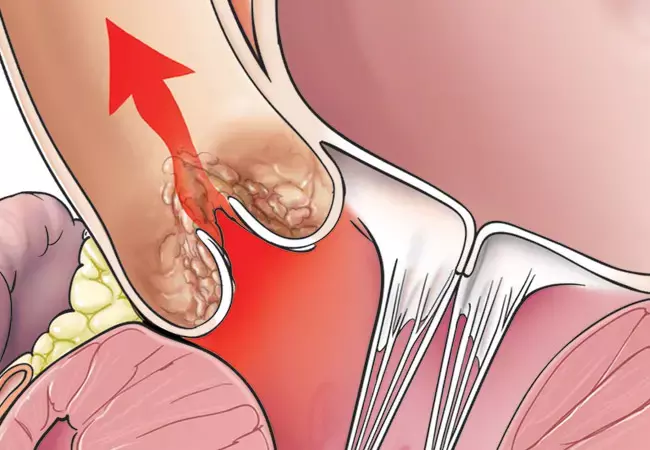- Home
- Medical news & Guidelines
- Anesthesiology
- Cardiology and CTVS
- Critical Care
- Dentistry
- Dermatology
- Diabetes and Endocrinology
- ENT
- Gastroenterology
- Medicine
- Nephrology
- Neurology
- Obstretics-Gynaecology
- Oncology
- Ophthalmology
- Orthopaedics
- Pediatrics-Neonatology
- Psychiatry
- Pulmonology
- Radiology
- Surgery
- Urology
- Laboratory Medicine
- Diet
- Nursing
- Paramedical
- Physiotherapy
- Health news
- Fact Check
- Bone Health Fact Check
- Brain Health Fact Check
- Cancer Related Fact Check
- Child Care Fact Check
- Dental and oral health fact check
- Diabetes and metabolic health fact check
- Diet and Nutrition Fact Check
- Eye and ENT Care Fact Check
- Fitness fact check
- Gut health fact check
- Heart health fact check
- Kidney health fact check
- Medical education fact check
- Men's health fact check
- Respiratory fact check
- Skin and hair care fact check
- Vaccine and Immunization fact check
- Women's health fact check
- AYUSH
- State News
- Andaman and Nicobar Islands
- Andhra Pradesh
- Arunachal Pradesh
- Assam
- Bihar
- Chandigarh
- Chattisgarh
- Dadra and Nagar Haveli
- Daman and Diu
- Delhi
- Goa
- Gujarat
- Haryana
- Himachal Pradesh
- Jammu & Kashmir
- Jharkhand
- Karnataka
- Kerala
- Ladakh
- Lakshadweep
- Madhya Pradesh
- Maharashtra
- Manipur
- Meghalaya
- Mizoram
- Nagaland
- Odisha
- Puducherry
- Punjab
- Rajasthan
- Sikkim
- Tamil Nadu
- Telangana
- Tripura
- Uttar Pradesh
- Uttrakhand
- West Bengal
- Medical Education
- Industry
Severe aortic stenosis tied to adverse myocardial remodelling like poor myocardial flow reserve: JAMA

Severe aortic stenosis linked with adverse myocardial remodelling like poor myocardial flow reserve, suggests a study published in JAMA Cardiology.
A group of researchers from U.S.A conducted a study to investigate whether MFR and stress MBF are associated with LV structure and function derangements and whether these parameters improve after aortic valve replacement (AVR).
In this single-centre prospective observational study in Boston, Massachusetts, from 2018 to 2020, patients with predominantly moderate to severe AS underwent ammonia N13 PET myocardial perfusion imaging for myocardial blood flow (MBF) quantification, resting transthoracic echocardiography (TTE) for assessment of myocardial structure and function, and measurement of circulating biomarkers for myocardial injury and wall stress. Evaluation of health status and functional capacity was also performed. A subset of patients underwent repeated assessment 6 months after AVR. A control group included patients without AS matched for age, sex, and summed stress score who underwent symptom-prompted ammonia N13 PET and TTE within 90 days.
LV structure and function parameters, including echocardiographic global longitudinal strain (GLS), circulating high-sensitivity troponin T (hs-cTnT), N-terminal pro–B-type natriuretic peptide (NT-pro BNP), health status, and functional capacity.
The results of the study are as follows:
· There were 34 patients with AS (1 mild, 9 moderate, and 24 severe) and 34 matched control individuals. MFR was independently associated with GLS and LV ejection fraction.
· Stress MBF was associated with hs-cTnT and log NT-pro BNP.
· The combination of low-stress MBF and high hs-cTnT was associated with higher interventricular septal thickness in diastole, relative wall thickness, and worse GLS compared with high-stress MBF and low hs-cTnT.
· In 9 patients studied 6 months after AVR, mean (SD) MFR improved from 1.73 (0.57) to 2.11 (0.50).
Thus, the researchers concluded that in AS, MFR and stress MBF were associated with adverse myocardial characteristics, including markers of myocardial injury and wall stress, suggesting that MFR may be an early sensitive marker for myocardial decompensation.
Reference:
Association of Myocardial Blood Flow Reserve With Adverse Left Ventricular Remodeling in Patients With Aortic Stenosis The Microvascular Disease in Aortic Stenosis (MIDAS) Study by Zhou W et. al published in the JAMA Cardiology.
Dr. Shravani Dali has completed her BDS from Pravara institute of medical sciences, loni. Following which she extensively worked in the healthcare sector for 2+ years. She has been actively involved in writing blogs in field of health and wellness. Currently she is pursuing her Masters of public health-health administration from Tata institute of social sciences. She can be contacted at editorial@medicaldialogues.in.
Dr Kamal Kant Kohli-MBBS, DTCD- a chest specialist with more than 30 years of practice and a flair for writing clinical articles, Dr Kamal Kant Kohli joined Medical Dialogues as a Chief Editor of Medical News. Besides writing articles, as an editor, he proofreads and verifies all the medical content published on Medical Dialogues including those coming from journals, studies,medical conferences,guidelines etc. Email: drkohli@medicaldialogues.in. Contact no. 011-43720751


